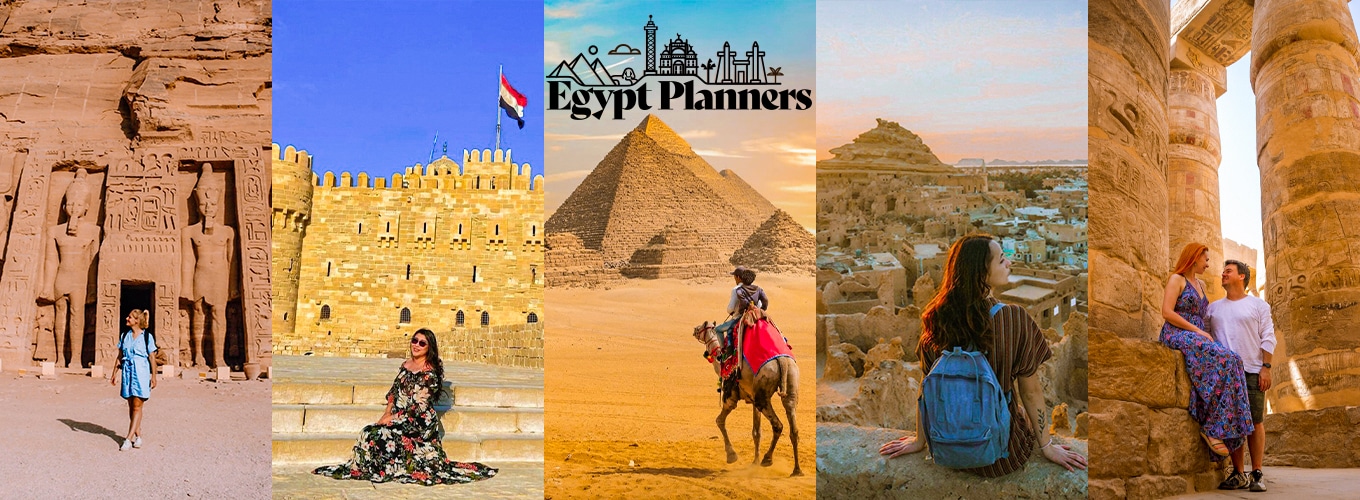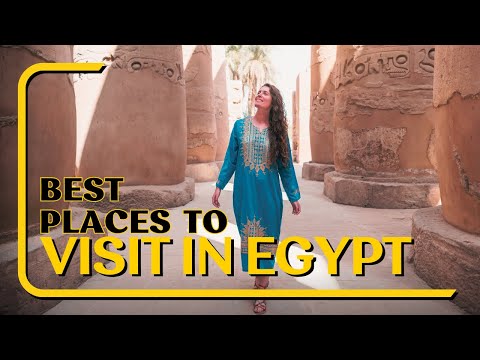When you decide to Discover Egypt, you’re stepping into a world where history comes alive, where every monument tells a story, and where every landscape offers breathtaking beauty. Ever wondered what it feels like to stand before, one of the Seven Wonders of the Ancient World?
Or to wander through the bustling streets of Cairo, where ancient traditions blend seamlessly with modern life? From the majestic temples of Luxor to the serene waters of the Red Sea, Egypt is a treasure trove of experiences waiting to be discovered.
But there’s more to Egypt than just its famous landmarks. Imagine sailing down the Nile, exploring vibrant bazaars filled with exotic goods, and tasting the rich flavors of Egyptian cuisine. Whether you’re an adventurer, a history buff, or a culture enthusiast, Egypt has something to captivate your heart and soul.Join us as we delve into the ultimate guide to visit Egypt, uncover the top destinations, hidden gems, and essential tips for an unforgettable journey. Let the magic of Egypt enchant you and turn your travel dreams into reality.
Key Takeaways for Discover Egypt
- Historical Marvels: Egypt offers a unique blend of ancient and modern, where iconic sites like the Pyramids of Giza, the temples of Luxor, and the Sphinx bring history to life.
- Cultural Experiences: The bustling streets of Cairo, vibrant bazaars like Khan El Khalili, and traditional Egyptian cuisine provide an immersive cultural experience.
- Natural Beauty: Egypt’s natural beauty is breathtaking, from the serene waters of the Nile River to the stunning landscapes of the Red Sea and the White Desert.
- Diverse Activities: Whether it’s a luxurious Nile cruise, exploring ancient tombs, diving in the Red Sea, or hiking in the Sinai Peninsula, Egypt offers a wide range of activities for all types of travelers.
- Hidden Gems: Discover lesser-known treasures like Siwa Oasis, the Temple of Seti I, and the City of the Dead, which offer unique and off-the-beaten-path experiences.
- Travel Tips and Safety: Visiting between October and April is ideal for comfortable weather. Dress modestly, stay hydrated, use reputable transportation, and respect local customs for a safe and enjoyable trip.
Things To Do In Egypt And Best Places To Visit in Egypt
What Are the Things to Do in Egypt? Start your journey full of history and fun in the land of the Pharaohs. Start in Cairo, exploring the Great Pyramids and vibrant bazaars. In Luxor, delve into ancient temples and tombs. Aswan offers serene beauty with its picturesque landscapes, Discover Alexandria’s rich Greco-Roman history and coastal charm.
Cap your adventure with a luxurious Nile cruise, gliding past stunning scenery and historic landmarks. Whether you’re a history buff, adventurer, or culture enthusiast, our Egyptian Travel Guide highlights the must-see attractions and hidden gems across these iconic cities for an unparalleled Egyptian experience.
Things To See In Cairo
It is called Cairo Al-Moez, where ancient history meets vibrant city life. what are the Things To See In Cairo?
- Giza Necropolis: Home to the iconic Great Pyramids and the Sphinx, this ancient burial site near Cairo is one of the most famous archaeological locations in the world.
- Egyptian Museum: Located in Cairo, this museum houses an extensive collection of ancient Egyptian artifacts, including treasures from Tutankhamun’s tomb.
- Khan El Khalili Bazaar: A historic market in Cairo offering a vibrant array of traditional crafts, jewelry, spices, and souvenirs, reflecting Egypt’s rich cultural heritage.
- Museum of Egyptian Civilization: This museum in Cairo showcases the breadth of Egypt’s history from prehistoric times to the present, featuring diverse artifacts and exhibits.
- Necropolis of Saqqara: An ancient burial ground near Cairo, famous for the Step Pyramid of Djoser, the earliest colossal stone building in Egypt.
- Dahshur Necropolis: A royal burial site near Cairo known for its unique pyramids, including the Bent Pyramid and the Red Pyramid, illustrating the evolution of pyramid construction.
- Islamic Cairo: A historic area of Cairo filled with medieval mosques, madrasas, and bazaars, reflecting the city’s Islamic architectural heritage.
- Hanging Church in Cairo: Also known as the Saint Virgin Mary’s Coptic Orthodox Church, this ancient church is famed for its unique suspended nave and rich Coptic history.
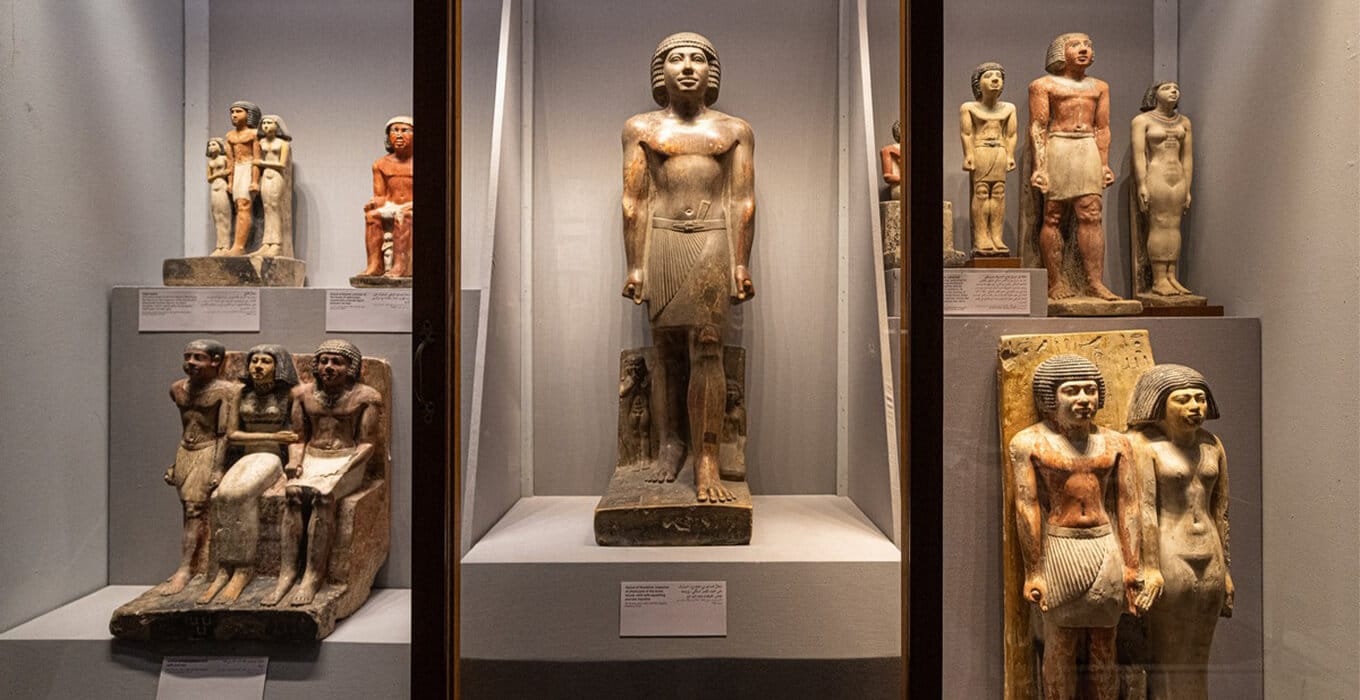
Things To Do In Luxor
Luxor is the ancient city of wonders. It owns two-thirds of the world’s antiquities and is considered the largest open-air museum in the world. What are the Things To Do In Luxor?
- Karnak Temple: One of the largest religious complexes in the world, located in Luxor, dedicated to the Theban triad of Amun, Mut, and Khonsu.
- Luxor Temple: An ancient Egyptian temple complex situated on the east bank of the Nile in Luxor, known for its grand colonnade and vibrant inscriptions.
- Temple of Abydos: A significant archaeological site dedicated to Osiris, located in Upper Egypt, featuring intricate carvings and the famous Abydos King List.
- Valley of the Kings: A royal burial ground on the west bank of the Nile near Luxor, housing the tombs of pharaohs, including the famous tomb of Tutankhamun.
- Colossi of Memnon: Two massive stone statues of Pharaoh Amenhotep III, located on the west bank of the Nile near Luxor, renowned for their historical significance.
- Dendera Temple: An ancient temple complex dedicated to the goddess Hathor, located north of Luxor, famous for its well-preserved zodiac ceiling.
- Hatshepsut Temple: A mortuary temple built for Pharaoh Hatshepsut in Deir el-Bahari, known for its unique terraced design and stunning reliefs.
Things To Do In Aswan
Discover the serene beauty of Aswan, The heart of the Nile River in the country of history and civilization. What are the Things To Do In Aswan?
- Abu Simbel Temple: Massive rock-cut temples built by Ramses II in Nubia, renowned for their colossal statues and relocated to save them from the rising waters of Lake Nasser.
- Temple of Kom Ombo: A unique double temple in Aswan dedicated to both Sobek, the crocodile god, and Horus, the falcon-headed god, featuring symmetrical structures.
- Temple of Philae: An ancient temple complex dedicated to the goddess Isis, located on Agilkia Island, is famous for its beautiful reliefs and stunning island setting.
- Elephantine Island: An island in the Nile near Aswan with significant archaeological sites, including ancient temples, a Nilometer, and a museum.
- Temple of Edfu: A well-preserved Ptolemaic temple dedicated to Horus, located between Luxor and Aswan, is known for its large pylons and detailed reliefs.
- Aswan High Dam: A monumental dam across the Nile in Aswan, built to control flooding, generate hydroelectric power, and create Lake Nasser.
- Tombs of Nobles in Aswan: ancient rock-cut tombs belonging to Egyptian nobles and officials, featuring intricate carvings and offering insights into their lives and beliefs.
- Unfinished Obelisk: An incomplete obelisk in Aswan, partially carved out of bedrock, showcasing ancient stone-working techniques and abandoned due to cracks.

Things To Do In Alexandria Egypt
Explore Alexandria, Egypt’s coastal gem. Also known as the Bride of the Mediterranean. What are the Things To Do In Alexandria Egypt?
- Citadel of Qaitbay: A 15th-century fortress located on the Mediterranean coast of Alexandria, built on the site of the ancient Lighthouse of Alexandria.
- Library of Alexandria: A modern cultural center and library, aiming to revive the spirit of the ancient Library of Alexandria, known for its vast collection and striking architecture.
- Pompey’s Pillar: A Roman triumphal column in Alexandria, the largest of its kind outside of Rome, erected in honor of Emperor Diocletian.
- Catacombs of Kom El Shoqafa: A historical archaeological site in Alexandria, featuring a series of tombs, statues, and artifacts blending Egyptian, Greek, and Roman cultural influences.
- Montazah Palace: A lavish palace and expansive gardens in Alexandria, originally built by Khedive Abbas II, now a public park and royal residence.
Cruising on the Nile
Embark on a timeless adventure by cruising on the Nile, the lifeblood of Egypt, and a journey that offers an unparalleled glimpse into the country’s rich history and stunning landscapes.
Imagine gliding along the gentle currents of the world’s longest river, with breathtaking views of ancient temples, lush green valleys, and vibrant local life unfolding before your eyes.
Your Nile cruise typically begins in the historic city of Luxor, home to the magnificent temples of Karnak and Luxor. As you sail towards Aswan, you’ll visit the Valley of the Kings, where the tombs of pharaohs reveal their secrets, and the grandiose Temple of Hatshepsut.
Each stop along the way, from Edfu’s Temple of Horus to the twin temples of Kom Ombo, offers a deeper connection to Egypt’s storied past.
A Nile cruise is not just about historical marvels; it’s also about indulgence and relaxation. Enjoy the luxurious amenities on board, from fine dining with panoramic river views to lounging on sun-drenched decks.
Book The Best Luxury Dahabiya Boats :
- Agatha Christie Dahabiya Nile Cruise
- MS Amoura Dahabiya Nile Cruise
- Assouan Dahabiya Nile Cruise
- Merit Dahabiya Luxury Nile Cruise
- Meroe Dahabiya Nile Cruise
- Nour El Nil Dahabiya Nile Cruise
- Sonesta Amirat Dahabiya Nile cruise
Best Time To Visit Egypt 2024/2025
When planning your trip to Egypt in 2024/2025, choosing the best time to visit Egypt is key to making the most of your adventure:
Egypt’s climate, mainly desert, means hot summers and mild winters. For the best experience, consider visiting between October and April. During these months, the weather is cooler, with daytime temperatures comfortably warm and evenings often pleasantly cool.
This period is perfect for exploring Egypt’s ancient wonders, like the Pyramids of Giza, the temples of Luxor, and the Valley of the Kings, without the intense heat of summer. Spring, from March to May, and autumn, from September to November, are particularly good times to visit, offering moderate temperatures and clear skies ideal for outdoor activities and Nile cruises.
Summer, from June to August, can be very hot, with temperatures frequently exceeding 40°C (104°F), making it less ideal for sightseeing but great for enjoying the Red Sea’s beaches and resorts. By planning your visit during the cooler months, you can fully enjoy Egypt’s rich history, stunning landscapes, and vibrant culture without the discomfort of extreme heat.
Egypt Outdoor Activities
Egypt Outdoor Activities that cater to a variety of interests, making it an exciting destination for adventure enthusiasts and nature lovers alike. Here are some of the top outdoor activities to enjoy in Egypt:
Desert Exploration:
- Camel treks
- 4×4 safaris
- Sandboarding
Red Sea Water Sports:
- Diving
- Snorkeling
- Kite surfing
- Windsurfing (in Hurghada and Dahab)
Nile River Activities:
- Felucca rides (traditional sailboats)
- Kayaking
- Paddleboarding
Hiking in the Sinai Peninsula:
- Mount Sinai (notable for its religious significance and sunrise views)
Bird Watching:
- Nile Delta
- Various oases throughout the country
Whether you’re seeking adrenaline-pumping activities or serene natural experiences, Egypt’s outdoor activities provide a perfect way to connect with the country’s rich natural beauty and cultural heritage.
Create lasting memories with Egypt WikiTravel as you dive into the rich history of this ancient land!
Hidden Gems in Egypt: Secret Places To Visit in Egypt in 2024/2025
Egypt is home to numerous hidden gems that offer unique and off-the-beaten-path experiences for travelers. Here are some of the top hidden treasures to explore:
- Surreal landscape with stunning white rock formations
- Ideal for camping and stargazing
- Lush palm groves and natural springs
- Ancient ruins of the Temple of the Oracle
- Traditional Berber culture
City of the Dead (Cairo):
- Historical necropolis where people live and work among the tombs
- Offers a unique perspective on Egyptian history and daily life
Temple of Seti I (Abydos):
- Important archaeological site with intricately carved hieroglyphs and stunning reliefs
- Less famous but equally impressive as Luxor’s temples
- Beautiful lakes and waterfalls
- Valley of the Whales with ancient whale fossils
- Pristine beaches and exceptional diving spots
- Away from the crowds of more popular Red Sea resorts
- One of the best-preserved temple complexes in Egypt
- Dedicated to Hathor, the goddess of love and joy
- Features impressive reliefs and an astronomical ceiling
Explore the Enchanting Oases and Deserts of Egypt – Secure Your Booking Today!
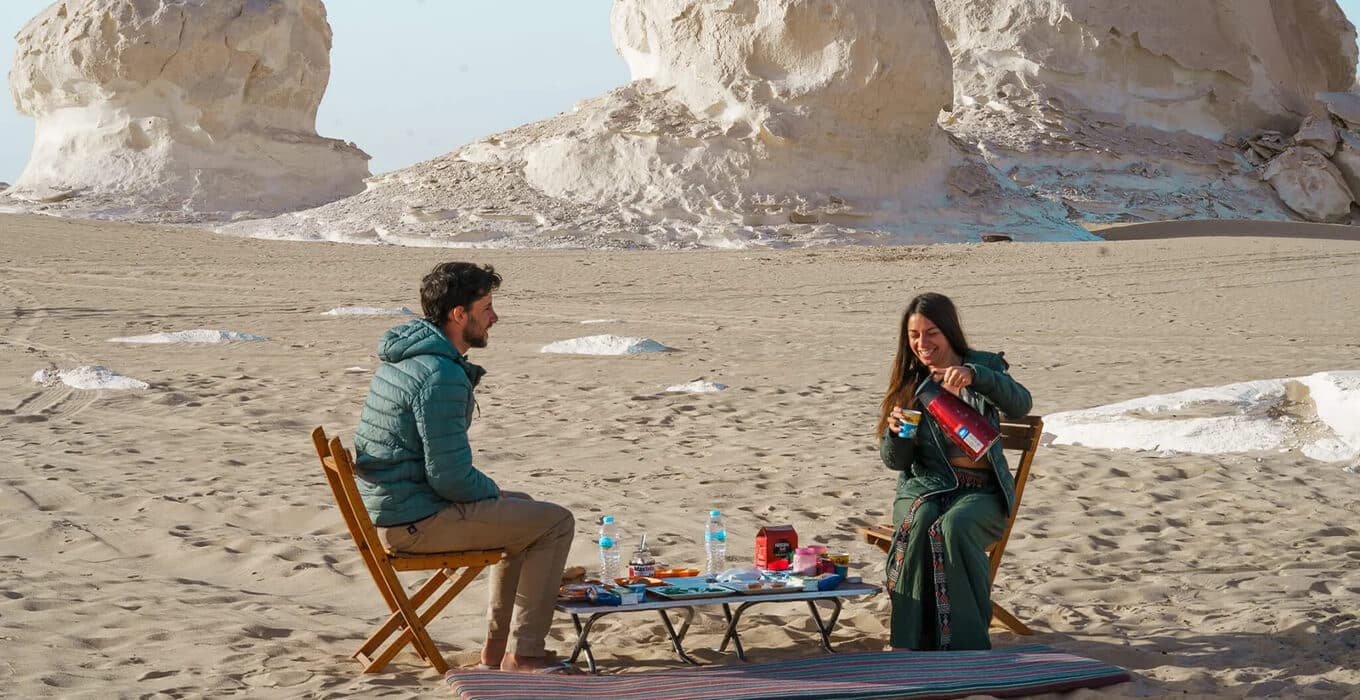
What to Pack for Egypt?
Packing for a trip to Egypt requires careful consideration of the climate, culture, and activities you’ll be enjoying:
- Light, breathable clothing is essential for staying comfortable in the desert heat, so pack plenty of loose-fitting, lightweight fabrics like cotton or linen.
- Don’t forget a wide-brimmed hat, sunglasses, and sunscreen to protect yourself from the intense sun.
- Comfortable walking shoes are a must, especially if you plan to explore historical sites, as many involve uneven terrain and lots of walking.
- Since Egypt is a predominantly Muslim country, it’s respectful to dress modestly; women should consider bringing scarves or shawls to cover their shoulders and knees when visiting religious sites.
- In the cooler months from October to April, pack a light jacket or sweater for the evenings, which can be surprisingly cool.
- A reusable water bottle is handy for staying hydrated, and a small backpack or daypack will help carry essentials during day trips.
- Don’t forget your camera to capture the incredible sights, and a power bank to keep your devices charged.
- Bring any necessary medications and a basic first aid kit, as well as copies of important travel documents. By packing thoughtfully, you’ll be well-prepared to enjoy all that Egypt has to offer.
Is It Safe to Visit Egypt Now?
Is it safe to visit Egypt now? The country has made significant strides in ensuring the safety and security of tourists. The Egyptian government has implemented stringent security measures in popular tourist areas, including the Pyramids of Giza, Luxor, and the Red Sea resorts.
Tourist police are present in these locations, and checkpoints are common to maintain a secure environment. While it’s always wise to stay informed about current events, most travel advisories indicate that Egypt is generally safe for visitors, especially in areas frequented by tourists.
It’s recommended to avoid certain regions, such as North Sinai, due to occasional unrest. However, places like Cairo, Alexandria, and the Nile Valley remain welcoming and safe for tourists. As with any travel destination, practicing common sense is crucial: keep your belongings secure, stay aware of your surroundings, and follow local customs and regulations.
Entry to Egypt Requirements
Involves understanding the Entry to Egypt Requirements to ensure a smooth and hassle-free experience. To enter Egypt, most travelers need a valid passport with at least six months remaining before expiration.
Additionally, a tourist visa is required for many nationalities, which can be obtained either before arrival or on arrival at Egyptian airports. It’s advisable to check with the Egyptian consulate or embassy in your country for specific visa requirements, as these can vary. For those eligible, the visa-on-arrival process is straightforward and involves a fee, usually payable in cash.
Some travelers may also apply for an e-visa online prior to their trip, which can save time at the airport. Ensure you have proof of accommodation and a return or onward ticket, as these might be requested by immigration officers. While not mandatory, it’s highly recommended to have travel insurance that covers health, accidents, and cancellations.
Currency and Tipping in Egypt
When traveling to Egypt, understanding the currency and tipping in Egypt customs can enhance your experience and help you navigate daily transactions smoothly. The official currency in Egypt is the Egyptian Pound (EGP), and it’s useful to have cash on hand, especially for small purchases or in areas where card payments are not widely accepted.
You can exchange money at banks, exchange offices, and some hotels, or withdraw cash from ATMs, which are widely available in major cities and tourist areas. It’s a good idea to carry smaller denominations for tips and minor expenses.
Tipping, known locally as “baksheesh,” is a common practice in Egypt and is appreciated for various services. In restaurants, a tip of 10-15% of the bill is customary if a service charge hasn’t been included. Hotel staff, such as bellboys and housekeeping, typically receive a small tip of a few pounds.
Tour guides and drivers often expect tips for their services, with the amount depending on the length and quality of the tour. Even small gestures, like helping with directions or providing assistance, might warrant a tip of a few pounds.
Understanding and participating in this tipping culture is a way to show appreciation for good service and can make your interactions more pleasant during your stay in Egypt.
What Language is Spoken in Egypt?
What Language is Spoken in Egypt? The official language is Arabic, specifically Modern Standard Arabic, which is used in formal settings such as government, media, and education. However, the everyday spoken language is Egyptian Arabic, also known as Masri, which has its unique vocabulary and pronunciation.
English is widely spoken in tourist areas, hotels, and restaurants, making it relatively easy for visitors to communicate. Many Egyptians working in the tourism industry are fluent in English, and some also speak other languages like French, German, Italian, and Spanish, depending on the region and the influx of international tourists.
These are some common Egyptian phrases:
- مرحبا (Marhaba) – Hello
- السلام عليكم (As-salamu alaykum) – Peace be upon you (a common greeting)
- صباح الخير (Sabah el-kheir) – Good morning
- مساء الخير (Masa’ el-kheir) – Good evening
- كيف حالك؟ (Kayf halak?) – How are you?
- بخير، شكرا (Bekheir, shukran) – Fine, thank you
- نعم (Na’am) – Yes
- لا (La) – No
- من فضلك (Min fadlak) – Please
- شكرا (Shukran) – Thank you
- عفوا (Afwan) – You’re welcome
- كم الثمن؟ (Kam el-thaman?) – How much is it?
- أين الحمام؟ (Ayna al-hammam?) – Where is the bathroom?
- إلى اللقاء (Ila al-liqaa) – Goodbye
- أريد المساعدة (Ureed al-musa’ada) – I need help
Accommodation in Egypt: Where to Stay in Egypt?
Finding the right accommodation is crucial for a memorable experience. Egypt offers a wide range of options to suit every traveler’s needs and budget. From luxurious five-star hotels in Cairo and Sharm El Sheikh to cozy boutique hotels in Luxor and Aswan, there’s something for everyone.
If you’re looking for an authentic experience, consider staying in a traditional Egyptian guesthouse, known as a “riad,” which offers charming, personalized service and a glimpse into local life. For budget travelers, there are plenty of hostels and budget hotels that provide basic amenities at affordable prices. Many hotels offer stunning views of iconic landmarks, such as the Pyramids of Giza or the Nile River, adding a magical touch to your stay.
In the Red Sea resorts like Hurghada and Dahab, you’ll find all-inclusive resorts that cater to those looking for a relaxing beach holiday with amenities like private beaches, pools, and a variety of water sports. For a unique experience, you might opt for a Nile River cruise, where you can travel in comfort while exploring ancient temples and picturesque landscapes.
No matter where you stay, you’ll find Egyptian hospitality to be warm and welcoming, making your accommodation a highlight of your trip.
Transportation in Egypt
Getting around Egypt is an adventure in itself, with a variety of transportation options catering to different needs and budgets. In major cities like Cairo and Alexandria, taxis are a convenient and affordable way to travel short distances.
- It’s advisable to use metered taxis or agree on a fare beforehand to avoid misunderstandings.
- Ride-hailing apps like Uber and Careem are also widely available and offer a reliable alternative.
- For a more authentic experience, you can try the local minibuses or microbuses, though they can be crowded and may require some local knowledge.
- The Cairo Metro is an efficient and inexpensive way to navigate the city, with clear signs in both Arabic and English.
- For intercity travel, trains are a popular choice, especially between Cairo, Alexandria, and Luxor, offering different classes to suit various comfort levels.
- Long-distance buses are another option, connecting major cities and tourist destinations.
- If you prefer flexibility, renting a car is possible, but be prepared for the chaotic traffic and different driving styles.
With these diverse transportation options, exploring Egypt can be as exciting as the destinations themselves.
Shopping in Egypt: Best Egypt Souvenirs And Popular Souvenirs From Egypt
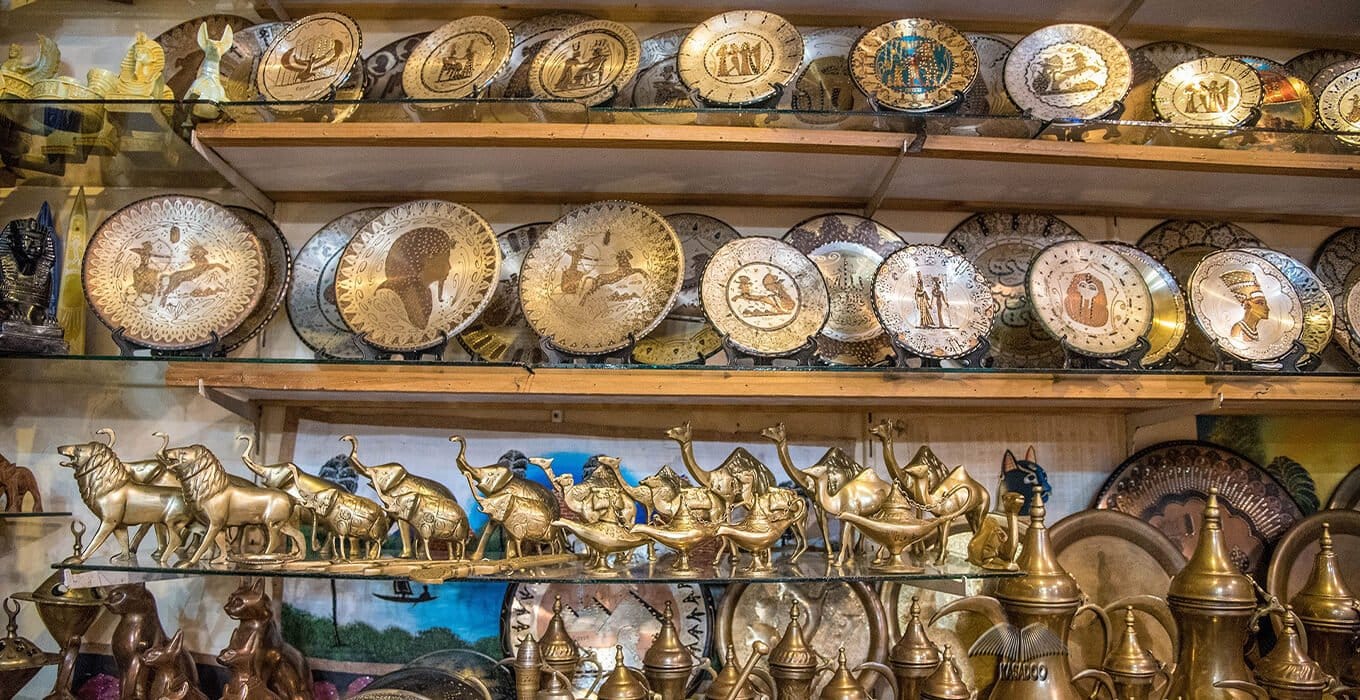
Shopping in Egypt is an exciting experience, offering a chance to bring home Egypt souvenirs that capture the essence of this fascinating country. Traditional markets, known as souks, and modern bazaars are filled with a variety of items that make perfect keepsakes or gifts.
- Egyptian Cotton: Renowned for its high quality and softness, available in clothing, bed linens, and scarves.
- Papyrus Scrolls: Decorated with ancient Egyptian motifs, providing a beautiful and historical piece of art.
- Jewelry: Silver and gold pieces featuring intricate designs inspired by ancient symbols and deities.
- Handcrafted Alabaster Items: Such as vases and statues, showcasing local craftsmanship and great decorative pieces.
- Spices and Herbs: Like hibiscus and saffron, offering a taste of Egypt’s culinary traditions.
- Aromatic Oils and Perfumes: Made from natural ingredients, providing a fragrant reminder of your travels.
- Cartouche: A personalized piece of jewelry with your name inscribed in hieroglyphics, making for a truly special souvenir.
With these diverse options, shopping in Egypt allows you to take a piece of this ancient and vibrant culture home with you.
Top 4 Famous Holidays and Celebrations in Egypt
Egypt is a country rich in cultural heritage, and its holidays and celebrations are a reflection of its diverse traditions and history.
1-Ramadan in Egypt
One of the most significant times of the year Ramadan in Egypt, a holy month observed by Muslims worldwide. During Ramadan, the daily routine changes dramatically as Muslims fast from dawn to sunset, refraining from eating and drinking.
As the sun sets, families and friends gather to break their fast with a meal called Iftar, which often begins with dates and water followed by a variety of traditional dishes. The nights come alive with social gatherings, prayer, and communal activities. Streets and homes are decorated with colorful lanterns called “fawanees,” creating a festive and spiritual atmosphere throughout the country.
2-Eid al-Fitr in Egypt
Following the month of Ramadan, Egyptians celebrate Eid al-Fitr, the “Festival of Breaking the Fast.” This joyous occasion begins with a special prayer at the mosque, where people come together in their best clothes to give thanks. Families then visit each other, sharing large meals and sweets, and exchanging gifts.
It’s a time for forgiveness and charity, with many people donating to those in need. The celebration is marked by a sense of community and togetherness, with public festivities and various events taking place across the country.
3-Christmas in Egypt
Christmas in Egypt is celebrated by the Christian community, particularly the Coptic Orthodox Church, on January 7th. Leading up to Christmas, Copts observe a period of fasting known as Advent, which lasts for 43 days. On Christmas Eve, families gather for a special church service that often lasts until midnight.
After the service, a festive meal is enjoyed, breaking the fast with traditional dishes. Homes and churches are adorned with decorations, and there is a spirit of joy and celebration as people come together to commemorate the birth of Jesus Christ.
4-Easter in Egypt (Sham El-Nessim in Egypt)
Easter in Egypt is an ancient Egyptian holiday that marks the beginning of spring, celebrated on the Monday following Coptic Easter. This secular holiday is enjoyed by Egyptians of all backgrounds. On this day, families and friends head to parks, gardens, and the banks of the Nile for picnics.
Traditional foods like feseekh (salted fish), green onions, and colored eggs are commonly eaten. The holiday is a time for enjoying nature and the outdoors, symbolizing renewal and the beauty of spring. The festive atmosphere is enhanced by music, games, and various outdoor activities that bring people together in celebration of the season.
Egyptian Cuisine: Egyptian Food Menu
Exploring Egyptian cuisine is a delightful journey into a world of rich flavors and traditional dishes. Here are some must-try items on the Egyptian food menu:
- Koshari: A hearty dish made of rice, lentils, pasta, and chickpeas, topped with spicy tomato sauce and crispy fried onions.
- Ful Medames: Slow-cooked fava beans served with olive oil, garlic, and lemon juice, often enjoyed for breakfast.
- Ta’ameya: Egyptian falafel made with fava beans, usually served in pita bread with fresh vegetables and tahini sauce.
- Molokhia: A green leafy soup made from jute leaves, typically served with rice or bread and a choice of meat like chicken or rabbit.
- Kofta and Kebabs: Spiced ground meat grilled to perfection.
- Mahshi: Vegetables such as bell peppers, zucchini, and grape leaves stuffed with rice and herbs.
- Basbousa: A semolina cake soaked in sweet syrup.
- Konafa: Shredded pastry with a creamy filling.
Solo Travel In Egypt: Is Egypt Safe For Solo Female Travelers?
Solo travel in Egypt can be a rewarding experience, offering the chance to explore its ancient history, vibrant culture, and stunning landscapes at your own pace.
For solo female travelers, safety is a common concern, but with the right precautions, Egypt can be a safe destination. Major tourist areas like Cairo, Luxor, and Aswan have a strong security presence, and the locals are generally hospitable and welcoming.
However, cultural differences mean it’s important to dress modestly, covering shoulders and knees, to respect local customs and avoid unwanted attention. Staying in reputable accommodations and using trusted transportation methods, such as ride-hailing apps or pre-arranged tours, can enhance safety.
It’s also advisable to avoid walking alone at night and to stay in well-lit, populated areas. Connecting with other travelers through hostels or social media groups can provide companionship and additional security. While occasional street harassment can occur, being confident, aware of your surroundings, and assertive can help mitigate uncomfortable situations.
By taking these precautions, solo female travelers can enjoy the rich experiences Egypt has to offer, from marveling at the Pyramids of Giza to cruising the Nile and exploring bustling bazaars.
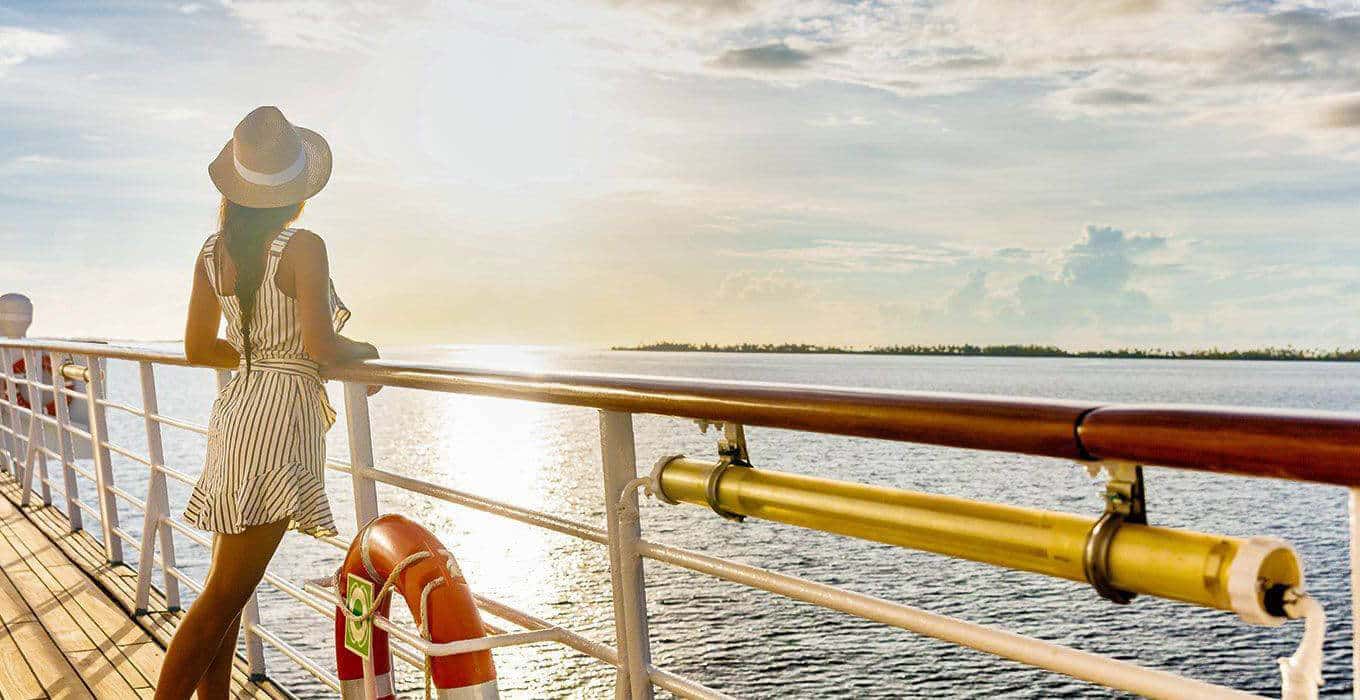
Top 11 Egypt Travel Tips When You Discover Egypt
Traveling to Egypt promises an unforgettable adventure filled with rich history, stunning landscapes, and vibrant culture. To ensure a smooth and enjoyable trip, here are some essential travel tips:
- Dress Modestly: Especially when visiting religious sites. Women should cover their shoulders and knees, and men should avoid shorts.
- Stay Hydrated: Due to the hot climate, always carry a bottle of water.
- Use Sunscreen and Hats: Protect yourself from the intense sun.
- Carry Small Denominations of EGP: Useful for tips and minor purchases.
- Bargain in Markets: Don’t hesitate to negotiate prices.
- Use Reputable Transportation: Opt for reputable taxis or ride-hailing apps like Uber and Careem to avoid being overcharged.
- Utilize the Cairo Metro: A reliable and inexpensive way to get around the city.
- Learn Basic Arabic Phrases: Enhances interactions with locals and shows respect.
- Respect Local Customs: Be mindful, especially during Ramadan.
- Get Travel Insurance: Ensure it covers health and accidents.
- Keep Travel Documents Secure: Store your passport and visa safely and have copies stored separately.
By following these tips, you can enjoy a safe and enriching experience in Egypt, discovering its ancient wonders and modern charms.
FAQs About Discover Egypt
1. Is it safe to go to Egypt right now?
Yes, it is generally safe to discover Egypt visit Egypt right now, particularly in major tourist areas like Cairo, Luxor, and the Red Sea resorts. The Egyptian government has implemented extensive security measures to protect tourists. However, it is always wise to check the latest travel advisories from your government before planning your trip.
2. Can US citizens travel to Egypt?
Yes, US citizens can travel to Egypt. They need a valid passport and a visa to enter the country. Visas can be obtained upon arrival at Egyptian airports or in advance through the Egyptian consulate or online through the e-visa system.
3. Is Egypt good for tourists?
Yes, Egypt is excellent for tourists. It offers a rich tapestry of historical sites, including the Pyramids of Giza, the temples of Luxor and Karnak, and the Valley of the Kings. Additionally, it has beautiful natural attractions like the Nile River and the Red Sea. The country provides a variety of experiences, from cultural and historical exploration to beach and adventure tourism.
4. Why is Egypt worth visiting?
Egypt is worth visiting for its unparalleled historical and cultural heritage. It is home to some of the world’s most famous ancient monuments, including the Great Sphinx and the pyramids, which are among the Seven Wonders of the Ancient World. Beyond its historical significance, Egypt also offers vibrant cities, beautiful landscapes, and warm hospitality, making it a destination that caters to a wide range of interests.
5. Is Egypt cheap or expensive?
Egypt is generally affordable for tourists. Accommodation, food, and transportation are reasonably priced compared to many Western countries. However, prices can vary depending on the level of luxury and the type of services you choose. Budget travelers can find many affordable options, while those seeking luxury can also find high-end experiences.
6. How safe is Egypt for female travelers?
Egypt can be safe for female travelers if certain precautions are taken. It is advisable for women to dress modestly, avoid traveling alone at night, and stay in reputable accommodations. While street harassment can occur, it is usually non-violent and can often be mitigated by confident and assertive behavior. Connecting with other travelers and following local advice can also enhance safety. Many solo female travelers have had positive experiences in Egypt by staying aware and taking sensible precautions.
Conclusion About Discover Egypt
we offer an incredible journey through a land rich in history, culture, and natural beauty. From the awe-inspiring Pyramids of Giza and the majestic temples of Luxor to the serene Nile cruises and vibrant bazaars, Egypt has something for every traveler.
The warm hospitality of the Egyptian people adds to the charm, making visitors feel welcome and safe. While exploring this fascinating country, you’ll encounter a unique blend of ancient and modern, where historical treasures meet contemporary life.
Remember to prepare for the climate, respect local customs, and take common-sense precautions to ensure a smooth trip. With its diverse attractions and unforgettable experiences, Egypt is a destination that promises to leave you with lasting memories and a deeper appreciation for its rich heritage.
Read our related articles:
